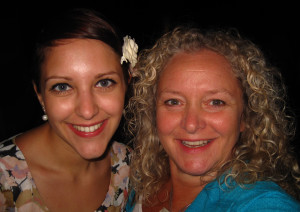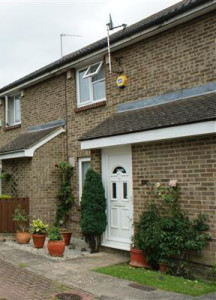HOW TO HELP YOUR CHILD BUY A PROPERTY – WITHOUT DIPPING INTO YOUR BANK ACCOUNT
HOW TO HELP YOUR CHILD BUY A PROPERTY – WITHOUT DIPPING INTO YOUR BANK ACCOUNT
By VICKI WUSCHE
These 10 tips will help you teach your children about property, money and maybe even a new way of thinking so that when they are ready to take that first step on the ladder, they can – without dipping into your bank account.
- We learn our values about money from our parents. What did your parents teach you? “Money does not grow on trees” or that money is an incredible tool when used wisely? These values and beliefs will have influenced every decision you make about money – it will have the same impact on your children’s’ lives too. We need to teach children that there is good debt and bad debt. Good debt puts money in your pocket.
So buying luxury goods on a credit card and not clearing the balance is bad debt, because that luxury item bought in the sale is now costing you an additional 20-28% interest. A property bought using a mortgage that is rented out to a tenant which results in an extra £250 per month income after all bills is a good debt, because it makes you money.
Depending on the age of your children they need to understand this concept. Of course you can still use credit cards – they are a fantastic tool but clear the balances every month unless you have a 0% card for a specific purchase.
- Now think of your home – does your house put money in your pocket? No. It is a liability and yet we are taught that owning your own home is an asset. In fact owning a property rented out to a tenant is an asset, but when you live in it then you have to pay the bills!
With the changes in the mortgage market over the last 10-20 years is has become possible for ordinary parents like us to invest in property – it is no longer something that only very rich and influential people can do – although unsurprisingly every very wealthy person or family has a significant property portfolio as part of their wealth. So what does that tell you? They do and we can as well.
Let your children know that they do not need to own the house they live in. In fact in some cases it makes sense to rent a property for a temporary period. However if you have access to savings or equity then why not invest in property that can make you money through rental profit and use that money to pay for you to live wherever you like – effectively rent free. Once you understand that your home is not an asset you can start to see that you can own property assets but they will be occupied by tenants.
The other factor to consider here is that your children may live much more mobile lives than we have. They will mostly likely travel away from home to university, then their first job or maybe a spell travelling the world before they settle down. One of my daughters is just ending three years at university and has plans to travel for a year to decide where she wants to settle. Meanwhile we have a family portfolio that will always be there to support her when she needs it.

- Start to think of property as a business opportunity as well as a place to live. Your children will face increasing house prices that come from normal supply and demand combined with the pressures of limited space on our island. This will need new thinking. As already pointed out trends imply that your children will struggle to afford a home in a location of their choice. What if they knew that property was a business opportunity and they were already buying property that they could afford (in another location) renting out to tenants and then using the income to live a life of their choosing.
- Don’t force it. Once I recognised what an amazing opportunity property investment could offer my family I became evangelical. I wanted my children to join in. One did and one did not. Don’t force it – let your children know about the opportunity but wait until they decide they are ready, otherwise property will make you miserable.
I spoke about our values around money in the first point, we also have values about every aspect of our lives. My older daughter was a teenager when I started investing – her interests were all about fun and friends not visiting dirty abandoned properties in the north of England and certainly not about making money. My younger daughter wanted to go travelling (and still does) and recognised that property could provide her with an income so she could travel and not have to work full time.
Always talk freely about money with your children – let them know the facts. Explain why you are being financially successful and what are you doing. Let them know when you are struggling and explain to them what has changed. These are real lessons about money and our children need to understand.
- When you start to explore property investment as a business opportunity you need to understand about return on investment as a way to compare one opportunity with another. Return on investment or ROI is an equation that helps you understand what you will get back in return for investing in a particular opportunity. A simple example is when you put your savings in the bank you are rewarded with interest. This is the ROI of that opportunity. So for example at the moment you might get 2.5% interest or 2.5% ROI
The way to calculate the ROI is to work out the total annual return (after all costs) and then divide that by the amount of money invested. So £2.50 divided by £100 equals 2.5% ROI
You can also do this with a property investment. The total net rent from a property during a year might be £500 x 12 = £6,000 (after the mortgage, letting agent and insurance is paid). The property might have cost £40,000 to buy (including the deposit, solicitor fees, survey repairs and certificates) so 6,000 divided by 40,000 equals 15% return on your investment.
That is how I decide where I want to invest my money.

- Now that you understand the level of return your money can be making for you and your family the next thing to understand is the impact of inflation and house prices on your family’s wealth. Because everyone was taught about their home being an asset we all planned to work hard and pay off our mortgages. Maybe that was right then. I worked out that if house prices were not increasing and inflation was between 2-4% then my home was losing value in real terms.
Then I worked out that I could invest in property and make 10-15% return on my money, so what if I could borrow money for 5% and make 15% in return. I could borrow money through a mortgage against my home, invest in property and the rental income would pay the mortgage on the rented property and the profit would pay the mortgage on my house and I would be left with the remaining extra income.
I explained this to my children – one daughter loved the idea. One was not interested ….. initially.
- Always take responsibility for any investment you make. Never just hand money over to someone else. It took me two years to learn the concepts, practice them and perfect them (partly because real life is never quite like they explain it in a class room). Always be responsible for your own due diligence, check the facts for yourself.
I am not a financial advisor – I am a keen student of all things economic and money related. I love buying property that makes a profit. I love finding a good deal and creating a system to repeat that specific business model. If this is not you or if your children are interested but do not have the skills then get help. Learn from others read books, speak to people and do your homework online. Training should not cost you tens of thousands of pounds, beware of cheap two hour or one day course that then sell you on to programmes that costs £10-20,000
Make all your decision in a non-emotional manner and do not be pressured in the room into signing any deals or commitments. An honest and professional property investor, trainer or sourcing agent will always give you time to think and decide, just be aware that the property market is fast moving. BUT there is always another deal to be had.
- Never sell a house – always consider it part of your portfolio. When you do have to move, maybe for work always explore whether you can rent your property for a profit. If there is demand for rental properties in your area, you can probably make a profit. Consider whether you can arrange with your current lender to release some of the equity in your home to use to invest in property.
You will need the help of a financial advisor but the formulae above should help. If you can remortgage your house and then invest that cash in rental properties for a profit then maybe that is an option you would not have considered before. Maybe that is one way to help your child buy a property without dipping into your bank account.
- If you have cash resources or available equity start investing now. Why? Because property prices are so cheap in relative terms. Interest rates will increase but that is why you need to find properties that will generate over 10% return on investment. These are more often than not outside London.
So how will that help your child buy their first house? It depends on the age of your child. If you have children under ten then they will not be eligible for a mortgage in their own name for at least eight more years. By that time the recession cycle will have moved on and with that property prices will start rising. If you buy property now (with your children’s future in mind) you could either leverage (remortgage) or sell those properties in 8-10 years and use the profit from the capital to pay for a deposit.
I would be using the extra cash flow that I had for the next eight years to give my family extra financial security and I would not personally sell all the properties I bought but work out what we needed in terms of income and remortgage or sell according to my personal financial strategy. However my children would either own investment properties or benefit from the rental income.
- If you don’t have money to invest now – start saving for the children and then buy smaller properties as soon as you can afford them. If you accept that, in order for property to be an asset for your family, you need to invest in some properties that are rented out then you can start that process any time you like. Start saving and as soon as you accumulate £30,-40,000 or release that level of equity then you can buy a rental property. While you can’t buy it in your child’s name because they are too young at the moment you can buy it with them in mind.
Estate planning can help you decide when is the right time to use family trusts etc. Personally I am holding all the property in personal names so I have the freedom to make the right investment choices, but then this is my full time business and passion.
So how will these 10 points help your child to buy a property without dipping into the bank of mum and dad? This is what I learnt from teaching my children, this is what I would do if I could do it all again;
- Understand how beliefs about money and property are affecting the decisions I make in life
- Learn about money, credit, liabilities, good debt and that my home is not an asset
- Recognise that there is a difference between a home and an investment property. I do not have to live in a house I own and I don’t have to own the house I live in. I do need to invest my money so that it makes my family more financially secure.
- When, and only when, my children are interested – teach them how. Always talk freely with them about money. I would explain why we did not have a lot of money, I would explain why I kept a spreadsheet, I would talk about the negative impact bad debt can have. I would teach them about using credit cards sensibly.
- As soon as I identified financial assets in my family that I could invest for a profit, I would learn what to do and find the right people to help me do it. I would build a team of professionals from solicitors and brokers to builders and letting agents. I might start with a sourcing agent (I actually did) and then take on more responsibility as I learnt more along the way.
Above all I would speak to my wider family so we were all working together to create a family portfolio for the children to provide them with financial knowledge, financial security and the information to make the right decisions about whether to buy a home, or invest and use the rental profit in the future, based on their needs at the time. Which is what we are doing.

About the Author
Vicki Wusche has gone from single mother on limited income, to successful property investor and business owner. Alongside her significant portfolio Vicki runs a successful business sourcing property for other investors and a second that draws on her skills as a former University Lecturer to teach people how to invest in property. She is author of three property investment books and has helped her daughter buy her own property using the techniques she teaches in her book ‘Property for the Next Generation’. For those considering property investment, Vicki offers an introductory strategy session.
See: www.PropertyForTheNextGeneration.com and www.VickiWusche.co.uk
